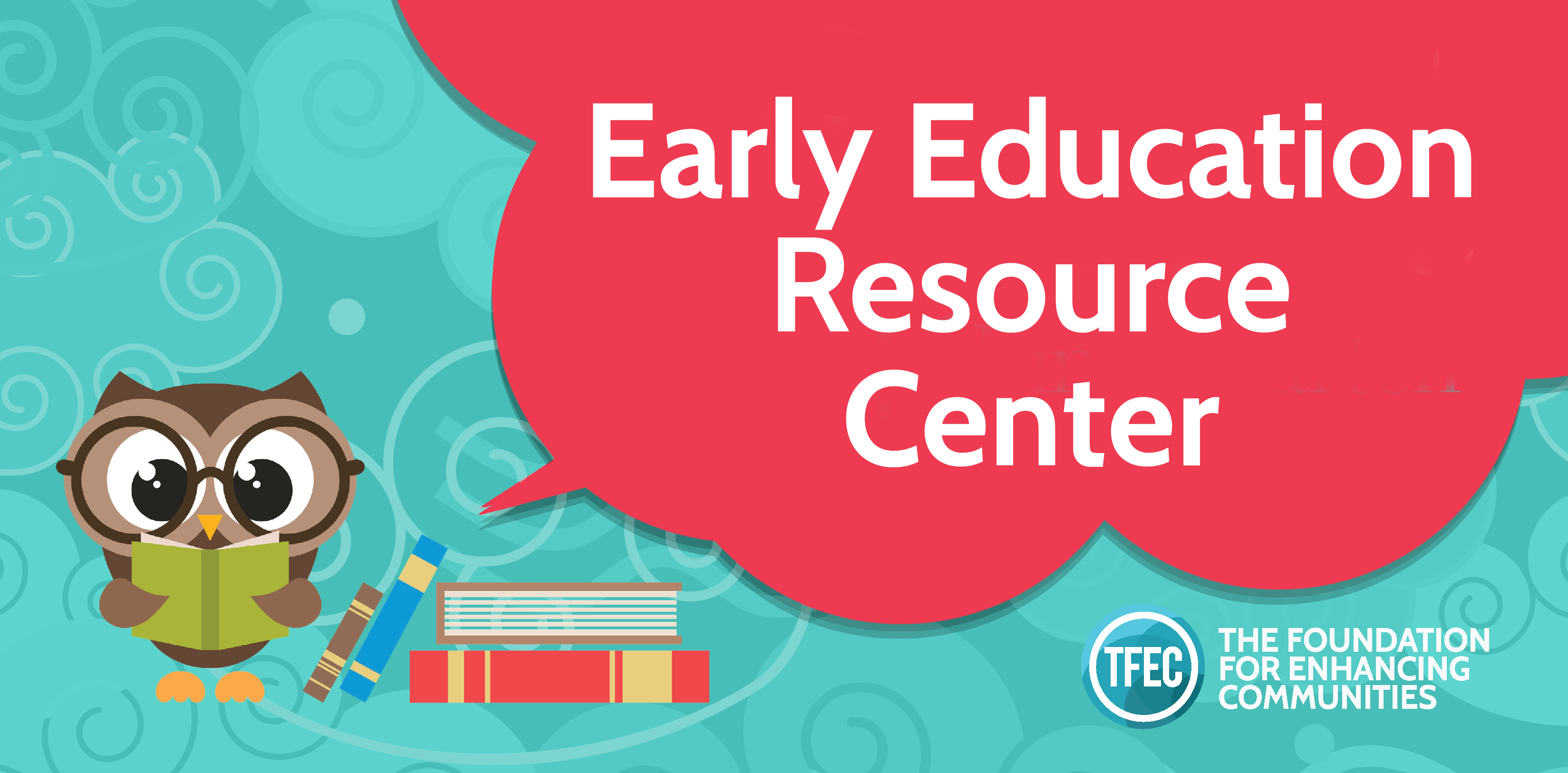
Early Education Resource Center
The mission of the TFEC Early Education Initiative is to cultivate, convene and strengthen community opportunities for growth, safety, and wellness for all children, now and for future generations.
The Early Learning Resource Center was created to provide information on school readiness, coping with mental health issues during times of uncertainty, and resources on becoming a trauma informed community for educators, parents, and community organizations. Children are at the center of the communities we serve and the following resources are focused on strengthening area supports so children can live, learn, and grow for the success and health of our region.
The Basics
Our approach is grounded in the latest research in early childhood learning, brain development, behavioral science, and community change. Our ongoing research agenda engages The Basics Learning Network (BLN) communities in documentation and evaluation for continuous learning and improvement. We aim to assess implementation progress against goals; track key outcomes with respect to community saturation, partner organizations, parents and caregivers, and children; uncover areas for improvement and innovation; and identify lessons and principles that can be shared within the multi-city BLN and the field at large.
Where did The Basics come from?
The Basics, Inc. grew out of the Achievement Gap Initiative at Harvard University in partnership with the Black Philanthropy Fund in Boston. The mission of The Basics is to bolster brain development for social, emotional, and cognitive skill building among children from birth to age five as a sturdy foundation for school readiness across whole communities.
Why does this matter to children and families?
By age three, a child’s brain reaches 80% of its adult size. Also during this period, gaps start to emerge between children from different backgrounds. Developmental skill gaps by race, ethnicity, and socio-economic status are very clear in national data by age two (and even before). These gaps appear across cognitive, language, and socio-emotional skills. Parents and caregivers are a child’s first teacher. Quality interactions from birth have a significant impact on a child’s foundation and their future learning capabilities.
Maximize Love Manage Stress
![]() Children thrive when their world feels loving, safe, and predictable. Respond with smiles, words, and touch to help them see, hear, and feel your love. You will help them develop a sense of security and self-control.
Children thrive when their world feels loving, safe, and predictable. Respond with smiles, words, and touch to help them see, hear, and feel your love. You will help them develop a sense of security and self-control.
Talk Sing Point
![]() Children learn language from the moment they are born. Respond to their sounds, and later, their words. Connect with eye contact and a loving tone of voice, while pointing to help them know what you are talking about.
Children learn language from the moment they are born. Respond to their sounds, and later, their words. Connect with eye contact and a loving tone of voice, while pointing to help them know what you are talking about.
Click here to view video resources on The Basics.
Click here to view Tips to Talk, Sing, and Point
Count Group and Compare
![]() Every child’s brain is wired for math. Talk about numbers, shapes, patterns, and comparisons as you go about your routines together. Watch your child learn to love math.
Every child’s brain is wired for math. Talk about numbers, shapes, patterns, and comparisons as you go about your routines together. Watch your child learn to love math.
Click here to view video resources on The Basics.
Click here to view Tips to Count, Group, and Compare
Explore Through Movement and Play
![]() Children are like scientists who love making discoveries. Watch to see what interests your child, then encourage their curiosity and help them learn when they play and explore.
Children are like scientists who love making discoveries. Watch to see what interests your child, then encourage their curiosity and help them learn when they play and explore.
Click here to view video resources on The Basics.
Click here to view Tips to Explore through Movement and Play
Read and Discuss Stories
![]() Reading turns kids into confident thinkers. Make books a regular part of your relationship from the very beginning. With infants, point at the pictures and speak with excitement. With toddlers, just make it fun.
Reading turns kids into confident thinkers. Make books a regular part of your relationship from the very beginning. With infants, point at the pictures and speak with excitement. With toddlers, just make it fun.
Click here to view video resources on The Basics.
Click here to view Tips to Read and Discuss Stories
Early Education Resources
Mindfulness
Mindfulness builds resilience. We are all faced with extra time on our hands and faced with uncertainty. Why not use that time to develop some skills that help us pay attention to our thoughts feelings and surroundings as they occur. This is mindfulness in its simplest form. Here are three principles to keep in mind:
Deliberate Preparedness
We need to be careful, not panic. Be careful with your hygiene, health, and avoid non-essential contact.
Togetherness
One lesson that is central to mindfulness is compassion. Taking care of yourself is taking care of another. We are not alone.
Be Kind To Yourself
Taking care of your mental health right now is essential. What can you do?
- Limit your exposure
- Practice careful hygiene
- Be prepared with food, water, and medicine
- Boost your immunity and manage your anxiety with meditation. Visit www.mindful.org for free mindfulness resources and guided meditations
What can you control?
This photo was sent to Riverside Trauma Center from Vicky Sherwood from Emmaus Family Shelter who found this graphic from thecounselingteacher.com. You can learn more about Riverside Trauma Center by visiting their Facebook page by clicking HERE. Or their website by clicking HERE.
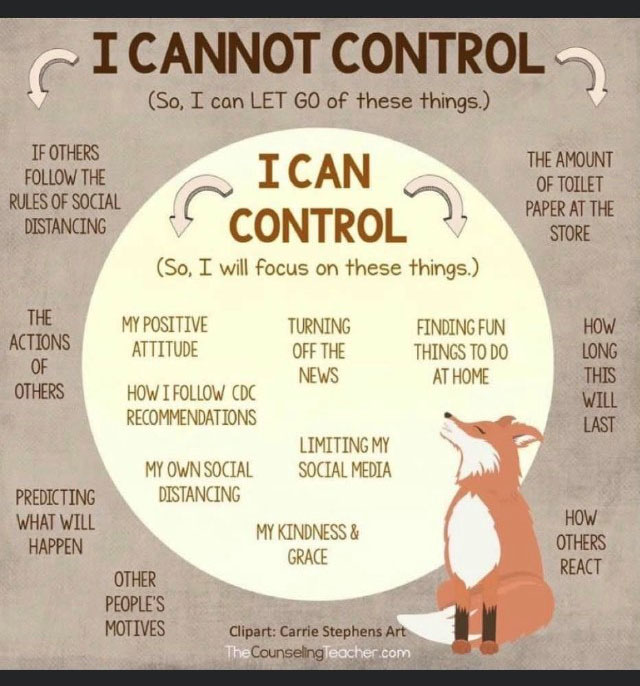
Try this Meditation at Home!!
Alan Jordan LMT, NCTMB
Intuitive Bodywork Massage Therapy
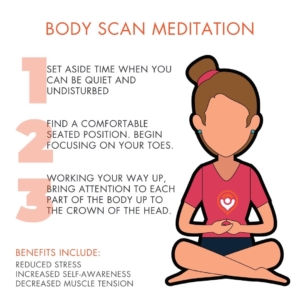
The Self-Care Wheel
The Self-Care Wheel is an empowering and positive tool for helping professionals to manage stress, increase contentment, and life satisfaction. With over 80 self-care exercises and healing modalities included, the Self-Care Wheel is a great beginning for your own personal and sustainable Self-Care plan. Visit www.olgaphoenix.com for more info.
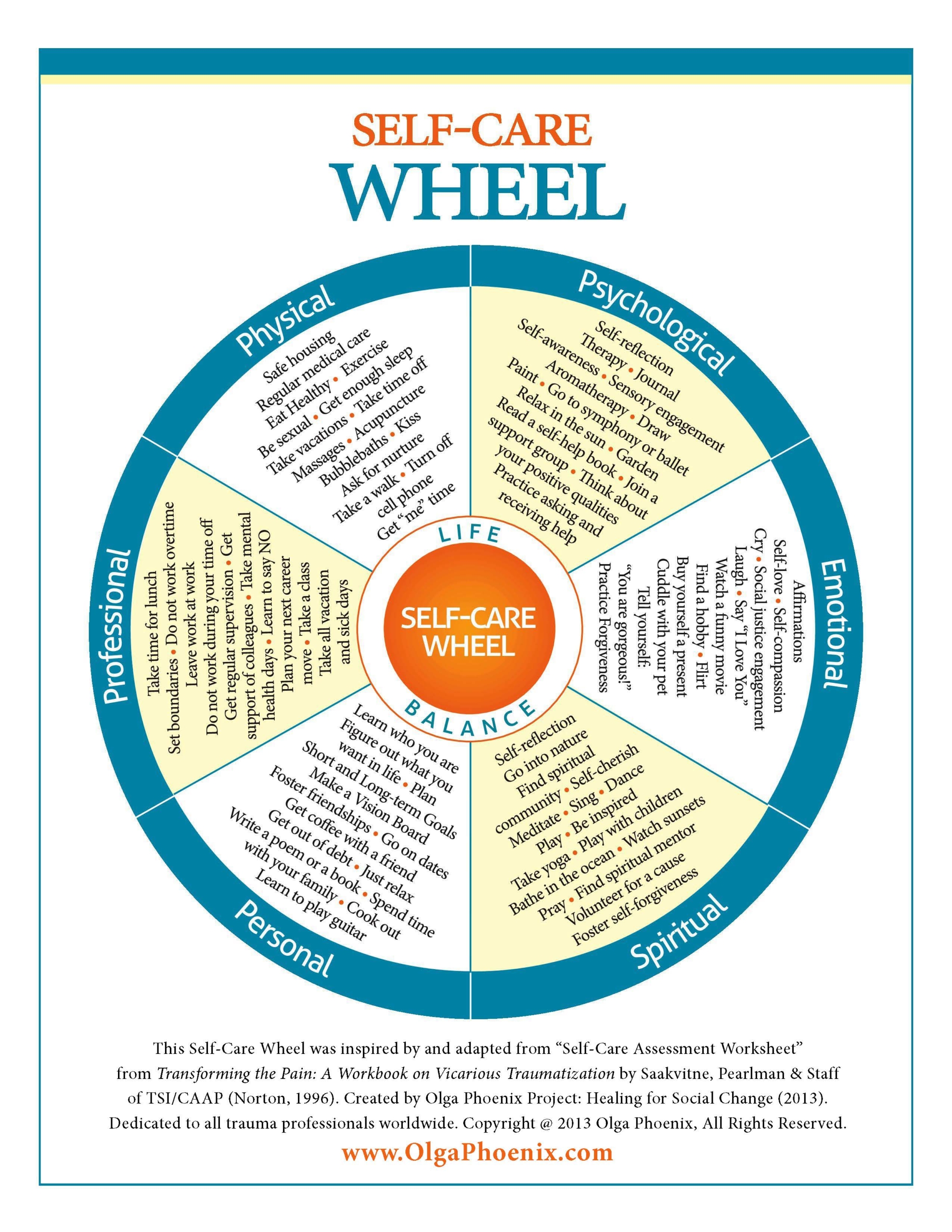
Learn from Home
National Center for Pyramid Model Innovations
The National Center for Pyramid Model Innovations (NCPMI) is funded by the Office of Special Education Programs to improve and support the capacity of state systems and local programs to implement an early childhood multi-tiered system of support to improve the social, emotional, and behavioral outcomes of young children with, and at risk for, developmental disabilities or delays. The goals of the Center are to assist states and programs in their implementation of sustainable systems for the implementation of the Pyramid Model for Supporting Social Emotional Competence in Infants and Young Children (Pyramid Model) within early intervention and early education programs with a focus on promoting the social, emotional, and behavioral outcomes of young children birth to five, reducing the use of inappropriate discipline practices, promoting family engagement, using data for decision-making, integrating early childhood and infant mental health consultation and fostering inclusion.
NCPMI envisions a world where all young children will have a positive future through the promotion of their social-emotional competence in equitable and inclusive environments.
You can learn more about NCPMI by visiting https://challengingbehavior.cbcs.usf.edu/index.html
Downloads
- What is A Prompt?
- Playing With Your Child
- Stay Calm. Connect. Reflect.
- Response Strategy – Provide a Verbal Reminder
- Response Strategy – Avoid Attending to the Behavior
- Prevent Strategy – Provide Transition Warnings
- Prevent Strategy – Provide Descriptive Feedback
- Prevent Strategy – Provide Frequent Positive Attention
- Prevent Strategy – Setting Clear Behavior Expectations
*All resources are from the National Center for Pyramid Model Innovations’ Facebook page.
Visit https://www.facebook.com/PyramidModel/ for more information*
Let’s talk about reducing the stress of homeschooling
- Simplify: Relax your homeschooling and productivity standards to a level appropriate for a worldwide pandemic.
- Structure: Keep calm and structure on
- Support: Get ahead of the meltdowns (and teach critical social-emotional skills, too!)
Click here to view the full blog post from Greater Good Magazine.
Let’s talk about race – Explaining What is Race
At-Home Activities
Try some of these activities to keep your child engaged in their education!
- April Showers Activity
- Art Project Activity
- Bean Bag Activity

- Bubble Foam Activity
- Cleaning Activity
- Collage Activity
- DIY Paint Activity
- Emotions Activity
- Laundry Activity
- Letter Recognition Activity
- Literacy Activity
- Music Activity
- Parachute Activity
- Playdough Activity
- Salt and Ice Activity
- Scavenger Hunt Activity
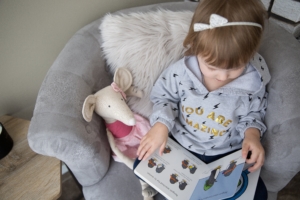
- Science Activity
- Self-Help Activity
- Senses Activity
- Sensory Bag Activity
- Shaker Activity
- Shape Hunt Activity
- Sorting Activity
- Two Points Activity
School Readiness Tip Sheets
It is never too early to start providing experiences that will help young children enter school ready to succeed. “School readiness” refers to not only academic knowledge, but also independence, communication, and the social skills needed in order to do well in school. This toolkit provides a comprehensive, flexible, easy-to-use set of resources to enhance the transition to kindergarten for all children. All activities are aligned with the Pennsylvania Learning Standards for Early Childhood.
Infant
Toddler
- Creative Expression
- Math for Toddlers
- Toddler Feelings
- Toddler Health and Wellness
- Toddler Literacy
- Toddler Science
Pre-School
- Colors All Around
- Cooperation
- Counting
- Creative Thinking and Expression
- Feelings
- Going to Kindergarten
- Learning Is Hard Work
- Letter Recognition
- Literacy Skills
- My Environment
- Physical Fitness
- Science
- Self-Help Skills
- Shapes
- Sorting and Classifying
- Using Your Senses
Is your child non-verbal or having trouble finding the words to express strong emotions?
The app Trigger Stop: Sensory and Emotional Check-In (available in both the App Store and Google Play Store) can help your child communicate what they are feeling, even if they can’t verbally explain their emotions.
You can learn more about Trigger Stop and download the app to your smartphone by clicking HERE.
First 10 Philosophy
The First 10 philosophy is to support schools and communities that are working to improve teaching, learning, and care throughout the first decade of children’s lives. First 10 initiatives bring together school districts, elementary schools, and early childhood programs to improve education and care for young children and their families.
For more information visit: https://first10.org/about/
Building Resilient Communities
Trauma is a widespread, harmful, and costly public health problem. Trauma can include homelessness and transience, unemployment, disaster, war, poverty, substance abuse, domestic violence, and abuse and neglect. Traumatic exposure cuts across age groups, gender identity, socioeconomic status, race, ethnicity, geography, and sexual orientation. Becoming “trauma informed” means recognizing that people often have many different types of trauma in their lives. A trauma informed community involves understanding, recognizing, and responding to the effects of all types of trauma. The resources listed below focus on trauma informed and resilience-building practices.
Resilience. The ability to recover quickly from difficulties; toughness. Something we could all use a little more of right now. It can be hard to be resilient after tough times but there is a way out, a way to bounce back. Researchers have identified 4 “protective factors,” activities that provide them with the conditions that help the emergence of their resilience. Let’s explore the idea of resiliency together!
To learn more about Resiliency in Action visit https://www.resiliency.com/free-articles-resources/hard-wired-to-bounce-back/.
Communicate “The Resiliency Attitude”
“You have what it takes to get through this!” The challenge with the resiliency attitude is to both be aware of the problems and to draw upon the strengths a person has to solve them as well as to sincerely communicate the belief that the current problems can be successfully overcome.
Adopt a “Strengths Perspective”
Instead of focusing on your weaknesses, focus on what you are strongest at! Acknowledge all that you’ve been through to get here and how you can use your strengths to overcome any current obstacles you may be facing.
Surround Each Individual (or family member) with all Aspects of the “Resiliency Wheel”
- The Resiliency wheel is made up of 6 components that can help individuals overcome adversity:
- Provide care and support
- Set high, but realistic, expectations for success
- Provide opportunities for “meaningful contribution” to others
- Increase positive bonds and connections
- Set and maintain clear boundaries
- Develop needed life skills
Give it Time
A resilient outcome requires patience. Identifying, celebrating, reinforcing, and nurturing the growth of these positive human traits is the most important skill we can collectively develop to help ourselves and others be more resilient.
Talk about How You’re Feeling
During the previous year of social distancing, quarantines, and vaccinations, you may not know how to express what you’re feeling. Here’s why it’s important to acknowledge the grief you may be feeling, how to manage it, and how you can find meaning in it.
Click here to view the full blog post from Harvard Business Review.
Disasters and traumatic events can bring along a wave of emotions including stress, anxiety, grief, and worry. Self-care is a huge factor in your long-term healing and taking care of your emotional health will ensure that you can be present to take care of your family. Here are some tips to help you cope with a traumatic event or disaster.
Click here to view the full article from the Center for Disease Control (CDC).
The grief over canceled milestones and modified plans are real. Here’s how you can cope.
Vitality
Be Strong Families continues to offer training such as Living the Protective Factors during COVID-19, Fast Track Workshops, and Parent Cafés online using Zoom.
Click here to view a list of upcoming webinars from Be Strong Families.
Additional Resources
Parents/Caregivers/Providers/Teachers
- Positive Experience.org
- Pace Connection
- Strengthening Families
- Fundamentals of SEL
- Understanding ACEs
- Understanding Childhood Trauma
- The Truth About ACEs
- Talking About Trauma in Public
- Childhood Trauma: Understanding How Trauma Impacts Mental Health & Wellness
- Through Our Eyes (video): https://www.ovc.gov/pubs/ThroughOurEyes/
- First Impressions – Exposure to Violence and a Child’s Developing Brain (video): https://www.youtube.com/watch?v=brVOYtNMmKk
- Toxic Stress (video): https://developingchild.harvard.edu/science/key-concepts/toxic-stress/
- Early Childhood Immigration and Trauma, Build Initiative (video): http://bit.ly/toolkittrauma
Community Members
- Case Statement for Trauma Informed Approaches
- Guidelines and Standards of Practice for Trauma Informed Communities
- Organizational Change Manual – University of Buffalo
- Trauma Informed Organizational Assessments
- Talking About Trauma in Public
- Reaching Struggling Students
- Children and Trauma for Mental Health Professionals
- Trauma Informed Practices in Schools
- Effects of Trauma on Urban Children
- Coping with Emotional and Psychological Trauma
- Effects of Trauma on Children and Adolescents
- Understanding ACEs
- Understanding Childhood Trauma
- The Truth About ACEs
- Childhood Trauma: Understanding How Trauma Impacts Mental Health & Wellness
- Trauma Resources Institute: https://www.traumaresourceinstitute.com/home
- Through Our Eyes (video): https://www.ovc.gov/pubs/ThroughOurEyes/
- First Impressions – Exposure to Violence and a Child’s Developing Brain (video): https://www.youtube.com/watch?v=brVOYtNMmKk
- Toxic Stress (video): https://developingchild.harvard.edu/science/key-concepts/toxic-stress/
- Early Childhood Immigration and Trauma, Build Initiative (video): http://bit.ly/toolkittrauma
